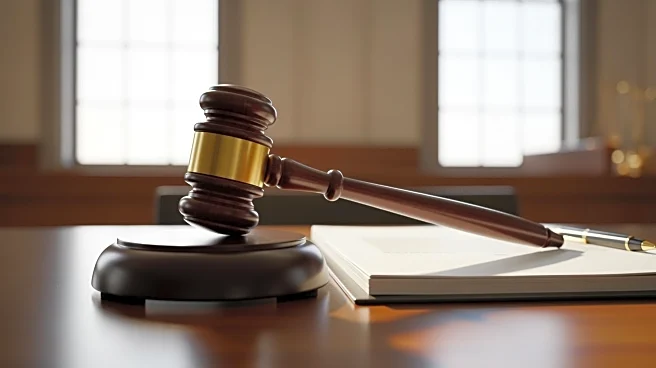What's Happening?
Ken Burns, renowned filmmaker, is set to debut his latest documentary series, 'The American Revolution,' on PBS. The series, spanning six nights and 12 hours, delves into the complexities and multifaceted nature of the American Revolution, challenging
the simplified narratives often associated with this pivotal period in U.S. history. Burns, along with co-directors Sarah Botstein and David Schmidt, and writer Geoffrey C. Ward, aims to present a comprehensive view of the Revolution, highlighting the diverse coalition of people involved, including Indigenous leaders, free African Americans, and others. The documentary arrives at a time when the U.S. is experiencing significant political and social divisions, echoing the historical conflicts and debates over citizenship and self-governance. Burns emphasizes the importance of understanding history's nuances, particularly as the nation approaches its 250th anniversary in 2026.
Why It's Important?
The release of 'The American Revolution' is significant as it provides a deeper understanding of the historical roots of current societal divisions in the U.S. By exploring the complexities of the Revolution, Burns offers insights into the ongoing debates about citizenship, equality, and governance. This documentary serves as a reminder of the nation's foundational struggles and the diverse voices that contributed to its creation. In an era where historical narratives are often simplified or politicized, Burns' work encourages viewers to engage with the past critically, fostering a more informed public discourse. The series also highlights the role of public broadcasting in preserving and disseminating historical knowledge, especially as federal funding for such initiatives faces challenges.
What's Next?
As 'The American Revolution' premieres, it is expected to spark discussions about the interpretation of American history and its relevance to contemporary issues. The documentary may influence educational approaches, encouraging schools and educators to incorporate more nuanced historical perspectives into their curricula. Additionally, the series could prompt policymakers and cultural leaders to reflect on the importance of historical accuracy in shaping national identity and public policy. With the upcoming 250th anniversary of the United States, there may be increased interest in revisiting and reassessing the nation's founding principles and their application in today's society.
Beyond the Headlines
Beyond its immediate impact, 'The American Revolution' may contribute to a broader cultural shift towards valuing complex historical narratives over simplified or mythologized versions. This could lead to a more critical examination of other historical events and figures, fostering a culture of inquiry and debate. The documentary also underscores the ethical responsibility of filmmakers and historians to present history with integrity, challenging audiences to confront uncomfortable truths and reconsider long-held beliefs. As the nation grapples with its identity and future direction, such works play a crucial role in shaping public consciousness and encouraging civic engagement.














